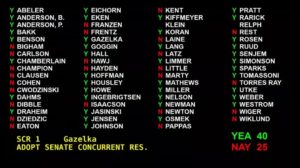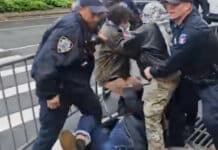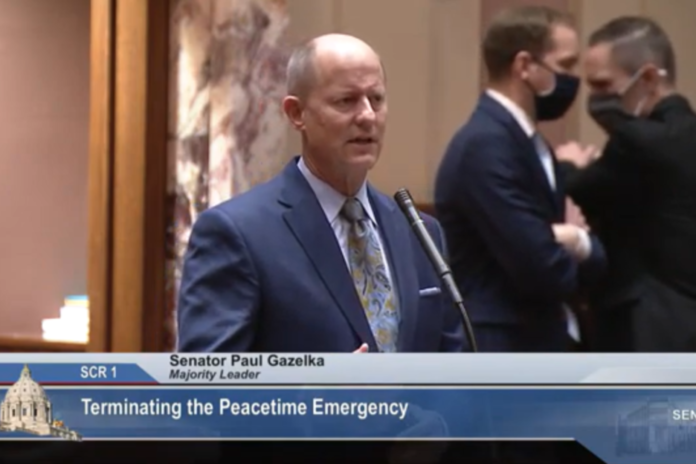Six Senate Democrats joined Republicans in voting to strip Gov. Tim Walz of his emergency powers during Monday’s special session, the seventh of the year.
The governor first declared a peacetime emergency on March 13 in response to the COVID-19 pandemic, meaning he has retained the ability to govern the state via executive orders for nine months. Walz has now issued 102 executive decrees since the start of the pandemic.
The Democrats who voted in favor of the resolution to end the peacetime emergency, which would force the governor to work with the Legislature on the state’s response to COVID-19, were Sens. Kent Eken, DFL-Twin Valley, John Hoffman, DFL-Champlin, Erik Simonson, DFL-Duluth, and Dan Sparks, DFL-Austin.
Sens. Tom Bakk, I-Cook, and David Tomassoni, I-Chisholm, who left the Senate DFL Caucus last month but are still affiliated with the Minnesota DFL, also voted in favor of the resolution, which passed 40-25.

“This isn’t about COVID-19. It’s about the emergency powers. It’s frustrated many of us because we want to have a say in how we make decisions,” said Senate Majority Leader Paul Gazelka, R-East Gull Lake. Gazelka was criticized by conservatives after last month’s session because the Senate didn’t take a vote on the governor’s powers.
“The ending of emergency powers is more about cooperation and the citizens’ voice being included,” added Sen. Michelle Benson, R-Ham Lake. “The governor is not telling us what data he’s using to make decisions.”
Monday’s vote marked the sixth time the Senate has moved to end the governor’s emergency powers, a proposal that hasn’t gained enough support to pass the DFL-controlled House.
“At the initial stages of the outbreak, we granted Gov. Walz significant leeway to navigate an outbreak none of us knew much about. But now it’s December. The Legislature is set to reconvene in just a few weeks. There is no decision that the governor has to make in such a short time frame that would rise to the level of a peacetime emergency; there is no decision that must be made so quickly that he cannot work on with the Legislature,” Sen. Scott Jensen, R-Chaska, said in a statement.
Jensen, a practicing physician, said the state can “address the unique needs of the pandemic without resorting to monarchical rule.”
“The founders never intended for one man to have so much power. Those of us who serve in government have a shared responsibility for navigating the pandemic. It should not be one man or woman shouldering the entire burden. The governor should convene a decision-making committee made up of majority and minority leaders in both the House and Senate, available within a 24-hour notice, who can help guide the state’s response,” Jensen suggested.
“What the governor is doing — holding an iron grip on power, choosing which businesses can operate, telling Minnesotans who they can socialize with — is wrong,” he added.
As expected, Walz formally extended the peacetime emergency for another 30 days on Monday, claiming that it provides Minnesota with “the tools necessary to effectively distribute the vaccine.”
Update: The resolution failed to pass the House late Monday night in a vote of 62-63 and nine abstentions. Six House Democrats voted in favor of the resolution.

















